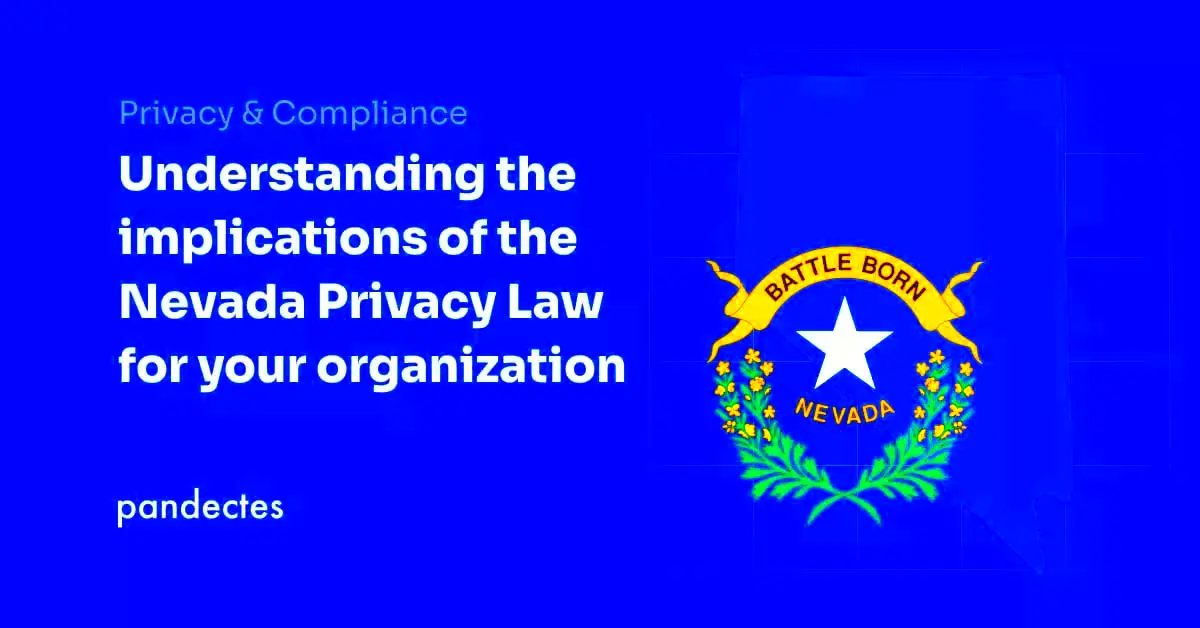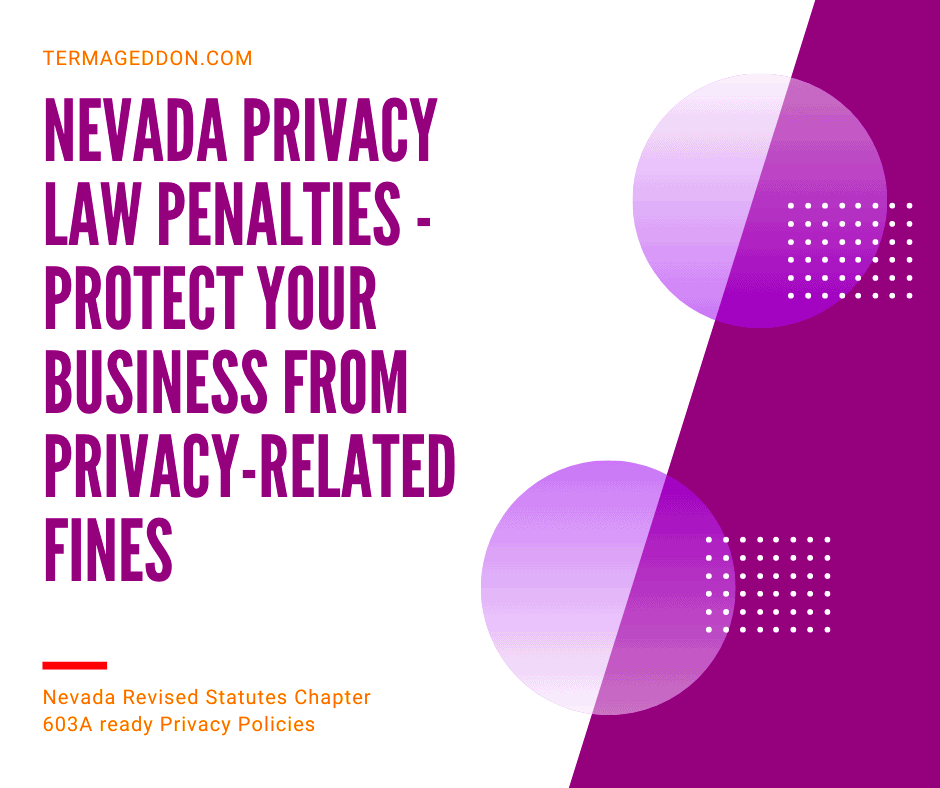Legal Considerations for Nevada Privacy Laws
Nevada has made significant strides in establishing privacy laws that protect consumer data. With the rise of digital information, the state recognized the need for regulations to safeguard personal information. These laws aim to give individuals more control over their data while holding businesses accountable for their practices. Understanding these regulations is essential for both consumers and companies operating in Nevada. This blog post will explore key terms, requirements, and impacts of Nevada’s privacy laws.
Understanding Key Terms Related to Privacy

To navigate Nevada’s privacy laws effectively, it’s crucial to understand some key terms:
- Personal Data: This refers to any information that can identify an individual, such as names, addresses, and email addresses.
- Data Controller: This is the entity that determines how personal data is processed and managed.
- Data Subject: The individual whose personal data is being processed.
- Processing: This encompasses any operation performed on personal data, including collection, storage, and sharing.
By grasping these terms, businesses and consumers can better understand their rights and responsibilities under Nevada’s privacy laws.
Overview of Nevada Privacy Law Requirements

Nevada’s privacy laws impose several requirements on businesses to ensure the protection of consumer data. Here are the main obligations:
- Consumer Rights: Consumers have the right to access their personal data and request its deletion.
- Disclosure Obligations: Businesses must inform consumers about the data they collect, how it’s used, and with whom it’s shared.
- Data Security Measures: Companies are required to implement reasonable security practices to protect personal data from unauthorized access.
- Opt-Out Options: Consumers must be given the option to opt out of the sale of their personal data.
Failure to comply with these requirements can result in penalties and damage to a company’s reputation. Businesses must stay informed about these laws and implement necessary measures to ensure compliance.
Impact of Nevada Privacy Laws on Businesses
Nevada’s privacy laws have created a significant impact on how businesses operate, especially those that handle personal data. Companies must now reassess their data handling practices to ensure compliance with these regulations. This shift not only helps protect consumer information but also builds trust with customers. Here are some key impacts:
- Increased Accountability: Businesses are now held accountable for their data practices, which means they must be transparent about how they collect, use, and share personal data.
- Operational Changes: Many companies are updating their privacy policies, implementing new data protection measures, and training employees on compliance requirements.
- Legal Risks: Non-compliance can lead to fines and legal action, making it essential for businesses to stay informed about changing regulations.
- Consumer Trust: By demonstrating a commitment to privacy, businesses can enhance their reputation and build stronger relationships with consumers.
Ultimately, while these laws may require some adjustments, they also present an opportunity for businesses to showcase their dedication to protecting consumer data.
Rights of Consumers Under Nevada Privacy Laws
Under Nevada’s privacy laws, consumers are granted several important rights that empower them regarding their personal information. These rights help individuals take control of their data and ensure transparency in how it is used. Here are some key rights:
- Right to Access: Consumers can request access to their personal data held by businesses.
- Right to Deletion: Individuals can ask businesses to delete their personal data when it is no longer necessary.
- Right to Opt-Out: Consumers have the option to opt out of the sale of their personal data to third parties.
- Right to Disclosure: Businesses must inform consumers about the data they collect and how it is utilized.
Understanding these rights is crucial for consumers, as it allows them to make informed decisions about their personal information and seek recourse if necessary.
Compliance Strategies for Businesses
To comply with Nevada’s privacy laws, businesses need to adopt effective strategies that address the requirements set forth. Here are some practical steps to ensure compliance:
- Review Data Practices: Conduct a thorough audit of current data collection and handling practices to identify any gaps in compliance.
- Update Privacy Policies: Revise privacy policies to clearly outline how personal data is collected, used, and shared.
- Implement Data Protection Measures: Invest in security technologies and protocols to protect personal data from breaches.
- Train Employees: Provide regular training to employees on privacy regulations and best practices for data handling.
- Establish a Response Plan: Create a plan for addressing consumer requests regarding data access, deletion, and opt-out options.
By proactively adopting these strategies, businesses can navigate the complexities of Nevada’s privacy laws and foster a culture of privacy and compliance.
Common Challenges in Adhering to Privacy Laws
While Nevada’s privacy laws aim to protect consumer data, adhering to these regulations can be challenging for many businesses. Understanding these challenges is crucial for effective compliance. Here are some common obstacles companies face:
- Complexity of Regulations: Privacy laws can be intricate and vary between jurisdictions. Keeping up with the details and changes can be overwhelming.
- Resource Constraints: Smaller businesses may lack the necessary resources, such as staff and technology, to effectively manage compliance efforts.
- Employee Training: Ensuring all employees understand and adhere to privacy policies can be difficult, especially in larger organizations.
- Data Management: Many businesses struggle with effectively managing and protecting large volumes of personal data, making it harder to comply with deletion and access requests.
- Consumer Awareness: Businesses may find it challenging to inform consumers of their rights and the processes for exercising those rights.
Addressing these challenges requires a proactive approach, involving regular training, updates to data practices, and open communication with consumers about their rights.
FAQ About Nevada Privacy Laws
Understanding Nevada’s privacy laws can raise many questions. Here are some frequently asked questions that can help clarify common concerns:
- What types of businesses are affected by Nevada privacy laws?
Any business that collects personal data from consumers in Nevada, regardless of where the business is located, must comply. - How can consumers exercise their rights?
Consumers can contact businesses directly to request access to their data or ask for deletion. - What penalties do businesses face for non-compliance?
Non-compliance can lead to fines and potential legal action from consumers. - Are there any exceptions to the laws?
Certain types of data, such as public records, may not be covered under these privacy laws.
These FAQs provide a clearer understanding of the implications and requirements of Nevada’s privacy laws for both consumers and businesses.
Conclusion and Final Thoughts
Nevada’s privacy laws represent a significant step towards protecting consumer rights in the digital age. While compliance can present challenges, the benefits of fostering trust and transparency with consumers far outweigh the hurdles. By understanding the laws, the rights of consumers, and the best practices for compliance, businesses can navigate this landscape effectively.
In the end, prioritizing privacy is not just about following the law; it’s about building lasting relationships with consumers. As privacy concerns continue to grow, being proactive in protecting personal data will become increasingly important. Companies that take these regulations seriously will be better positioned to thrive in a privacy-conscious market.


